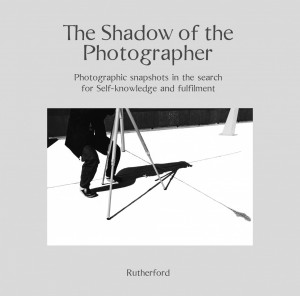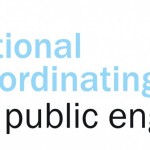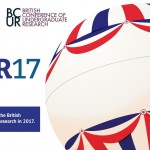Being a reflective doctor is integral to the safe practice of medicine and forms a significant part of the assessment process for General Practitioners in the UK. Reflective practice is integral to Fitness to Practice and Maintaining an ethical approach as identified in the RCGP training curriculum:
As a GP you should aim at understanding and learning to use your own attitudes, strengths and weaknesses, values and beliefs in a partnership with your individual patients. This requires a reflective approach and the development of insight and an awareness of self. Being honest and realistic about your own abilities, strengths, weaknesses and priorities will help you in dealing with your patients and problems; the lack of self awareness will make your job as a GP very difficult. (RCGP Curriculum)
Rutherford (Programme Leader – MA Advertising) and Dr Emer Forde (GP Foundation Programme Director – Centre for General Practice) have been leading a series of workshops with GP trainees which uses photography as a means to encourage meaningful and constructive self-reflection.
 In addition to our snapshots of friends and family, holidays and special events, many of us also make photographs of things… just because we liked the way something looked, but often without knowing why our attention had been attracted to a particular scene. For example, we might photograph two children playing in a park, an old house, or a bicycle lying in the grass – but we don’t know those children, or the people who lived in that house, and that’s not our bicycle. It was suggested that, when we are prompted to record a scene with which we have no conscious or logical connection, it may be that we have intuitively recognised a personally relevant metaphor in the arrangement of elements – and one to which our subconscious is now trying to bring to our attention.
In addition to our snapshots of friends and family, holidays and special events, many of us also make photographs of things… just because we liked the way something looked, but often without knowing why our attention had been attracted to a particular scene. For example, we might photograph two children playing in a park, an old house, or a bicycle lying in the grass – but we don’t know those children, or the people who lived in that house, and that’s not our bicycle. It was suggested that, when we are prompted to record a scene with which we have no conscious or logical connection, it may be that we have intuitively recognised a personally relevant metaphor in the arrangement of elements – and one to which our subconscious is now trying to bring to our attention.
The GP trainees were asked to carry a camera with them wherever they went and to be prepared to photograph those scenes or ‘moments’ that attracted their attention with an intuitive ‘tap on the shoulder’.
After identifying the three or four photographs at which they regularly paused when leafing casually (‘absent mindedly’) through their photographs, the GP trainees were then asked to reflect on the significance of both the individual elements within the frame as well as the ‘story’ depicted in the picture – and to try to identify the aspect(s) of their personal or professional lives the photographs appear to describe allegorically. The GP trainees were required to submit a self-reflective commentary of 500-1000 words explaining what they had learned about themselves as a result of this project – and how the photographs led to these insights.
These workshops have formed the basis of an ongoing research project, leading to three articles for diverse academic journals currently in preparation.
The photographs produced by the GP trainees in these workshops will be exhibited at the Atrium gallery (Talbot campus) in the week of 12 December 2016.
 Call For Contributions: Engage 2016
Call For Contributions: Engage 2016 British Conference of Undergraduate Research – encouraging students to apply
British Conference of Undergraduate Research – encouraging students to apply










 Visiting Prof. Sujan Marahatta presenting at BU
Visiting Prof. Sujan Marahatta presenting at BU 3C Event: Research Culture, Community & Can you Guess Who? Friday 20 March 1-2pm
3C Event: Research Culture, Community & Can you Guess Who? Friday 20 March 1-2pm Beyond Academia: Exploring Career Options for Early Career Researchers – Online Workshop
Beyond Academia: Exploring Career Options for Early Career Researchers – Online Workshop UKCGE Recognised Research Supervision Programme: Deadline Approaching
UKCGE Recognised Research Supervision Programme: Deadline Approaching SPROUT: From Sustainable Research to Sustainable Research Lives
SPROUT: From Sustainable Research to Sustainable Research Lives ECR Funding Open Call: Research Culture & Community Grant – Apply now
ECR Funding Open Call: Research Culture & Community Grant – Apply now ECR Funding Open Call: Research Culture & Community Grant – Application Deadline Friday 12 December
ECR Funding Open Call: Research Culture & Community Grant – Application Deadline Friday 12 December MSCA Postdoctoral Fellowships 2025 Call
MSCA Postdoctoral Fellowships 2025 Call ERC Advanced Grant 2025 Webinar
ERC Advanced Grant 2025 Webinar Update on UKRO services
Update on UKRO services European research project exploring use of ‘virtual twins’ to better manage metabolic associated fatty liver disease
European research project exploring use of ‘virtual twins’ to better manage metabolic associated fatty liver disease
fascinating and worthy – we should avoid the GP who kept looking at the knife!